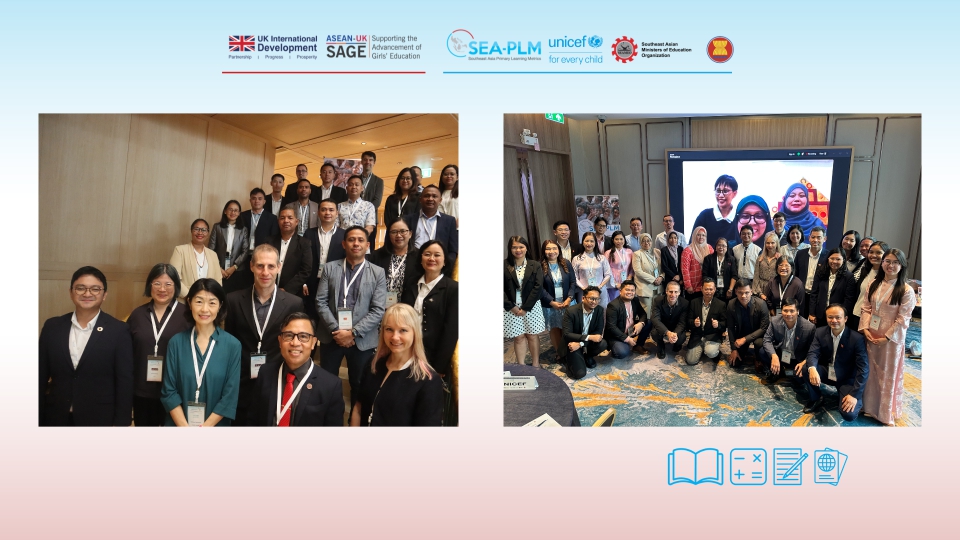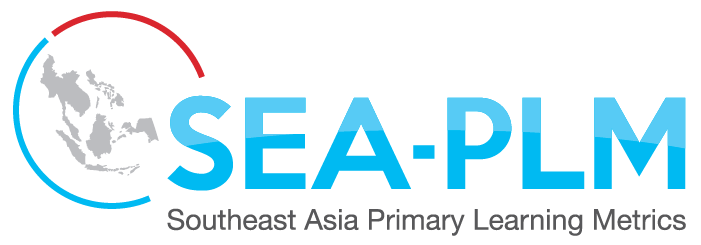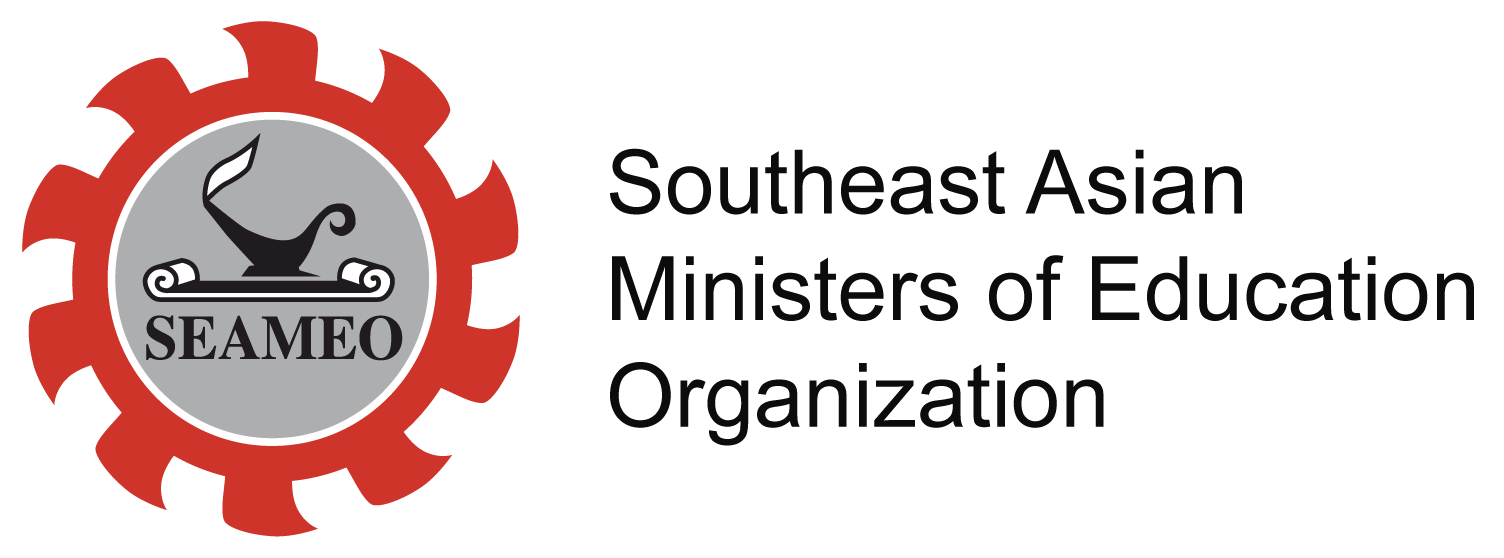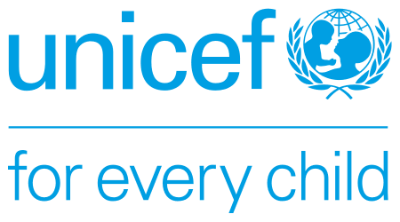Bangkok, September 2025 - The SEA-PLM Regional Secretariat successfully conducted a two-week hands-on capacity-building workshop on data analysis from 18-29 September 2025, bringing national teams to strengthen their capacity to translate learning assessment data into meaningful policy insights. The regional capacity-building workshop was made possible with the generous support of the UK Government through the ASEAN-UK SAGE programme.
The training, held in two batches, convened teams from Lao PDR, Myanmar, and Timor-Leste in the first week, followed by Cambodia (online), Malaysia, the Philippines, and Viet Nam in the second. Honorary member countries Brunei Darussalam and Thailand also participated. Sessions were led by the SEA-PLM Regional Secretariat, Australian Council for Educational Research (ACER), and experts from the PISA team of the OECD.
 |
 |
 |
|
Mr John Arnold Siena (SEA-PLM Secretariat), Ms Renee Sze Leung Kwong (ACER), and Ms Soumaya Maghnouj (PISA) during technical workshop on data analysis
The workshop aimed to equip national teams with practical skills to manage and analyze their SEA-PLM 2019 and 2024 datasets. ensuring evidence could be transformed into meaningful policy insights. Over five intensive days, participants learned to navigate the SEA-PLM 2024 data structure, generate tables and charts, move from menu-driven analysis to SPSS syntax, and apply replicate procedures to calculate means, proficiency distributions, and percentiles. Teams also practiced merging student and parent questionnaires to uncover deeper insights, such as repeated grade percentages. Each batch concluded with country presentations of preliminary findings, followed by peer and expert feedback to guide next steps.
 |
 |
 |
 |
 |
 |
 |
|
Trainer from ACER and Participants during SEA-PLM Capacity Building on Data Analysis
A highlight of the second week was a comparative segment on SEA-PLM and PISA reporting. Trainers demonstrated how findings from both assessments can complement one another, while cautioning against overlooking differences in design, coverage, and target populations. Practical sessions covered the use of plausible values, replicate weights, and analytical tools such as IDB Analyzer to ensure rigorous reporting.
Unlike traditional workshops, the sessions emphasized reproducibility and real-world application. Participants worked directly with their own country datasets, developed analysis plans tied to national policy questions, and carefully documented their syntax for peer review. The goal was to ensure national teams left not only with technical skills but also with draft evidence-based narratives and visuals ready to inform reports and policy briefs.
Mr. Timothy of ACER highlighted the unique value of SEA-PLM: “The data allows countries to look beyond students and teachers to include parents’ perspectives, which provides a fuller picture for shaping national policies.”
From the participant side, Mrs. Sitthata of Lao PDR noted: “The training is directly useful for preparing our national report. We will continue consulting with SEA-PLM and ACER to ensure our analysis is accurate and impactful.”
 |
 |
Representative from Ministry of Education in Thailand and Brunei Darussalam participate in the capacity building workshop in SEA-PLM 2024 data analysis
Through initiatives like this, SEA-PLM aims to ensure that assessment data does not remain on shelves but is actively used to guide classroom practice and inform national policy decisions. With stronger skills and a shared regional toolkit, participating countries are better equipped to embed data-driven insights into education reforms
The workshop wasn’t just theoretical. Participants practiced with their own files, worked through country-specific research questions, and documented syntax carefully so analyses can be reproduced and peer reviewed later. The aim is that teams leave ready to write clear, evidence-based paragraphs and visuals for national reports, not just spreadsheets.
SEA-PLM’ hope, with stronger skills and a shared toolkit, national teams will go deeper into their results and contextualize them into concrete actions, so assessment data doesn’t sit on shelves, but actually informs classroom practice and policy decisions.
–
SEA-PLM is supported by the UK Mission to ASEAN under the ASEAN-UK Supporting the Advancement of Girls’s Education (SAGE) Programme. Its content is the sole responsibility of the SEA-PLM Regional Secretariat and does not necessarily reflect the views of ASEAN-UK SAGE.

|
|
|
|
|
|
|
|




